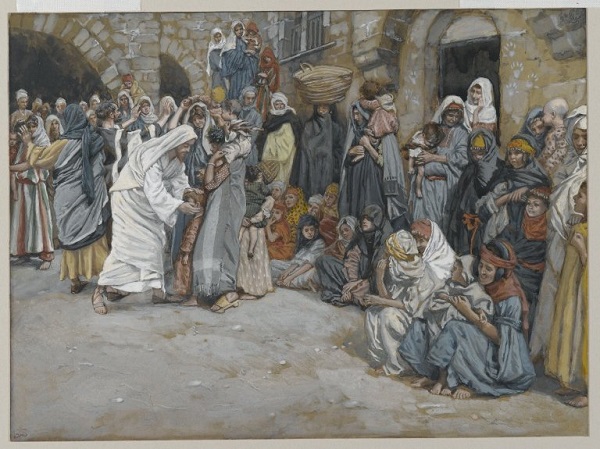Now that we’re a week out from perhaps the strangest graduation—and Spring Quarter—we’ve ever had in the nearly 175 year history of the Seminary, we asked Dr. Peter Scaer, Chairman and Professor of Exegetical Theology, to write up a piece reflecting on this time. We’re preparing to slowly open the campus over the summer, the plans for which we’ll post on Monday, but for today, as we go into the weekend, is this reflection on presence.
Here, in the Presence
By the Rev. Dr. Peter J. Scaer
Zoom fatigue is real, and online teaching just isn’t the same. The coronavirus has taught us quite a lot about the promise and pitfalls of technology. Certainly I have been grateful for video conferencing, emails, internet lectures, and all the rest. They have made it possible to continue our work of teaching the faith, reaching the lost, and caring for all. But they also remind us that this kind of living is not natural, that we were made for more.
I was one of the early advocates for online worship services, and was so grateful to pray and sing along as I logged onto Facebook. But, after a while, it does wear thin. We crave interaction and presence. A big part of seminary life is what we call the ungraded curriculum. This includes not only chapel together, where the voices of others make my voice stronger, but also coffee hour after chapel and Gemütlichkeit on Friday.
To be sure, we have had our share of online happy hours, but they’re never quite as happy as the real thing. While coffee hour leaves me invigorated, ready to get on with the work of studying and teaching, online gatherings often leave us flat, depleted of emotional energy. Apart from the body language of presence, it feels sometimes as if we are in a multi-person staring contest, and the awkward pauses are longer and more frequent.
So, we read the gospels and we see a ministry of presence. Christ is Emanuel, God with us. Not talking to us from a distance, but actually with us. Throughout His ministry, Christ ate and drank with His disciples, walked with them, and entered the boat as together they rowed to the other side. When Peter fell in the water, Jesus reached out with His hand. When our Lord came upon a leper, He touched him. When He saw a child, our Lord embraced him. And it went both ways. A woman reaches out to touch the hem of our Lord’s garment. A woman washes Jesus’ feet with her hair. Thomas wants the flesh and blood of Christ, the holes in His hands and feet. And at the Last Supper, the beloved disciple rests in the bosom of our Lord.
Technology is a blessing, yes, a wonderful supplement to all that we do, but it can never be a substitute for a potluck or pitch-in, or gathering together at the table of our Lord, eating real body and drinking real blood. Popular singers know this. Everyone needs a hand to hold onto.
We all need the human touch because we are flesh and blood human beings, created body and soul. We are not simply souls trapped in bodies; we live as embodied souls. To touch someone’s hand is not simply to touch their body—it is to touch the very person. In the early Church, there was the kiss of peace, perhaps not duplicated by the handshake of fellowship. But the lonely need a hug as much as a word. The elderly, the young, and all those in between need touch.
For the sake of safety, and in concern for our neighbor, we take precautions. Some wear masks, others not, but it must always be done so in love for others and to the glory of God, in a spirit of charity and understanding. But we can never get used to church online or a seminary that does not truly come together, body, soul, and mind, in the classroom, over coffee, at the cafeteria and chapel.
We don’t want symbols of Christ’s flesh and blood, we want the real thing. We are not content with emails, we want to talk face to face, to laugh and smile together. To comfort others in real and tangible ways, to enjoy the kind of human contact that comes naturally to us, as ones made for such things.
So pray for an end to the pandemic and pray that we can join together, replacing emoticons with real and interactive emotion, canned laughter with easy chuckles. Even more, pray that we soon come together, strengthened by each other’s singing, sitting, kneeling, and standing as one, truly together in our Lord’s presence.
Though online for this day and these times, soon we must come together to enjoy the fellowship of real presence, with each other, and with our Lord. More than an online chat, pray that we might soon be together in the house of our Lord.

